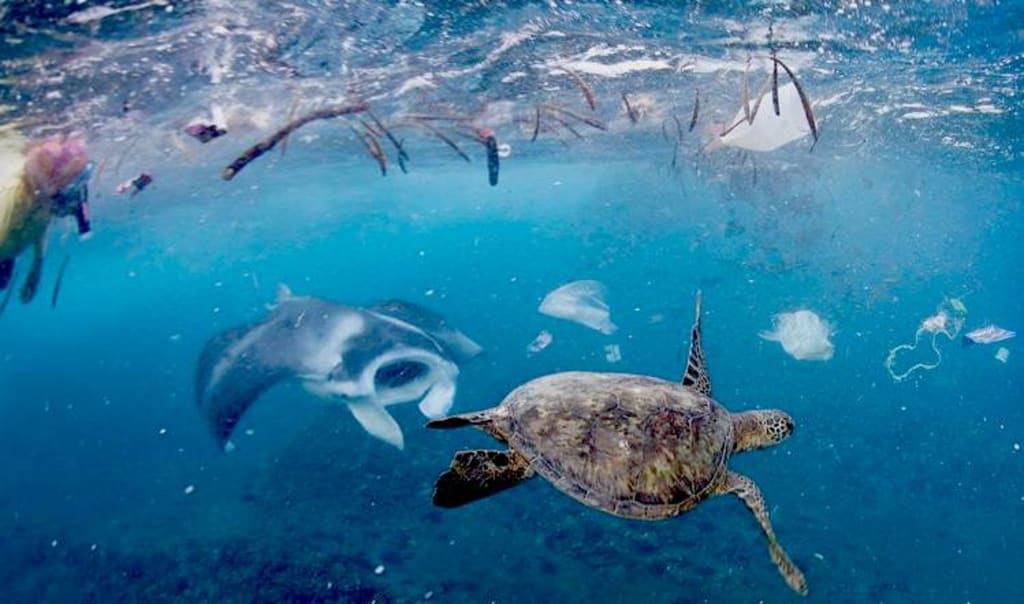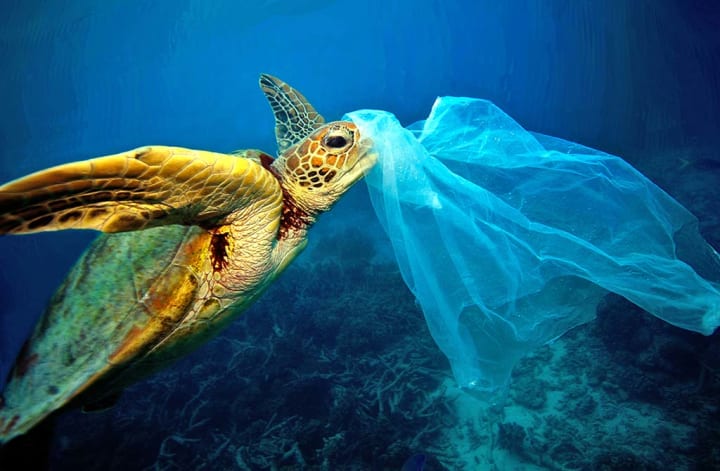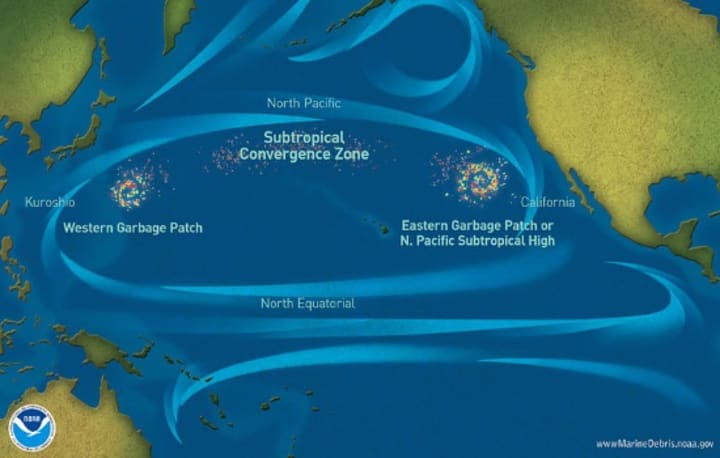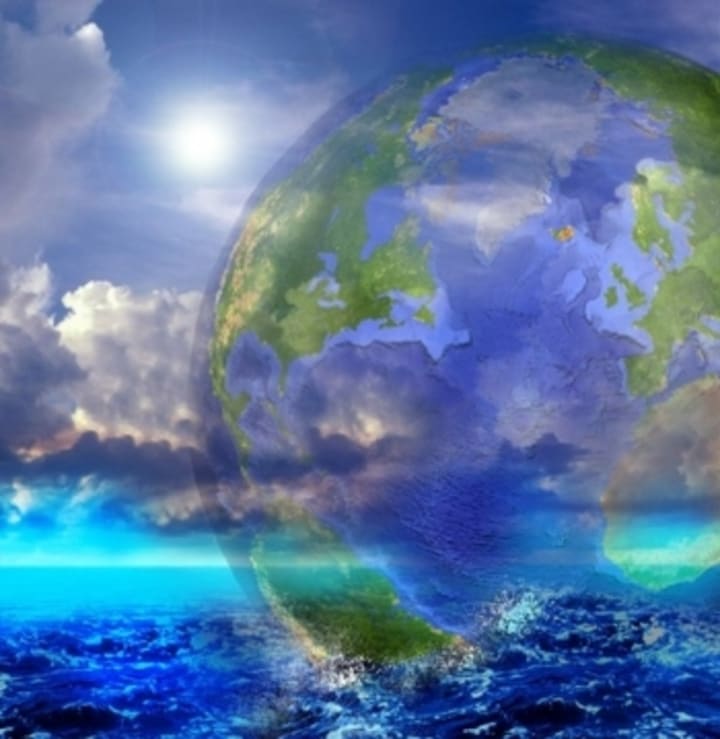Help Save Our Oceans
'Live a life of tranquility, not discontentment.' —Pandit Jadonath

Going to the beach has been something that I enjoy doing every day and night. I have learned so much about life just from going to the beach and always had a passion for studying marine biology. We all know that we receive so many health benefits from the ocean, right? Like sea salt, omega three from fish, vitamin D from the sun, vitamin K from kelp, etc. Now with some of us human beings traveling on cruises and boats, or even having a day or night out on the beach, we sometimes throw plastic products on the sand, depending on the people who clean our beaches to do the work. Now when we do that, sometimes the plastic products end up in the water by the wind. When a thing like this happens, it puts the marine life in danger, and ours. About 6.3 billion gallons of oil each year to make plastic bottles is used. More than 90 percent is used once, especially in medical fields and at home. In this year alone, 300 pounds of plastic, which is 136 kilos of single-use plastic, is in our oceans. Many human beings dump about eight million tons of plastic every year, but only 70 percent sink to the bottom of the ocean. As the plastic slowly breaks down its particles in the ocean, many marine lives, including coral reefs, feed on it. In the Western Mediterranean, approximately one to two ratios of plastic are in plankton and coral reefs. There are approximately five trillion pieces of plastic found around the world. The polyethylene used worldwide in products of toothpaste, cosmetics, and facial scrubs are significant sources of polyethylene.
We all know the oceans' food chain, like for example; Shrimp eat plankton, larger animals feed on shrimp, including whales, seabirds, etc.; then when we humans eat the marine life such as kelp, snapper, grouper, lobster, etc. Some of those animals have polyethylene in them which sometimes causes us to be sick. Plastic is part of survival resource for fueling in many Caribbean countries as well. We are not putting just the ocean or sea creatures in danger and their economy, but ourselves too. In most birds, 18 percent of their body weight is of plastic, which is six to eight percent of weight in human beings. Manila Bay landfill located in the Philippines alone covers exactly 123.5 acres of plastic and is home to 2,000 families. These families use plastic bottles and plastic bags as fuel for their fire stoves. Now once the plastic fumes are inhaled, it automatically affects their brain activity and body in many negative ways, and when these chemicals evaporate into the soil and it rains, all those micro plastic chemicals enter into the air and end up spreading around the world. Let us work together to stop these activities from happening. Be conscious of how we use plastic products—especially when storing foods, using them for storing paint, or even drinking from plastic bottles, and be careful of how you throw away your plastic products. Be creative and make recycled art with them. In addition, Brass and Copper are to be good for our human body's health for many centuries. Try using brass bottles or copper bottles to store your drinks, brass bowls or copper bowls to store foods, and always make sure to throw away all plastic products that you do not need in your recycling bins or nearby trash cans. Do not distribute them into our precious oceans.










About the Creator
Maydha Rani Sheomangal
Hi Everyone! I'm a medical student from NY studied to be a radiologist enjoy traveling, art, humanitarian services & taking part in religious activities.






Comments
There are no comments for this story
Be the first to respond and start the conversation.